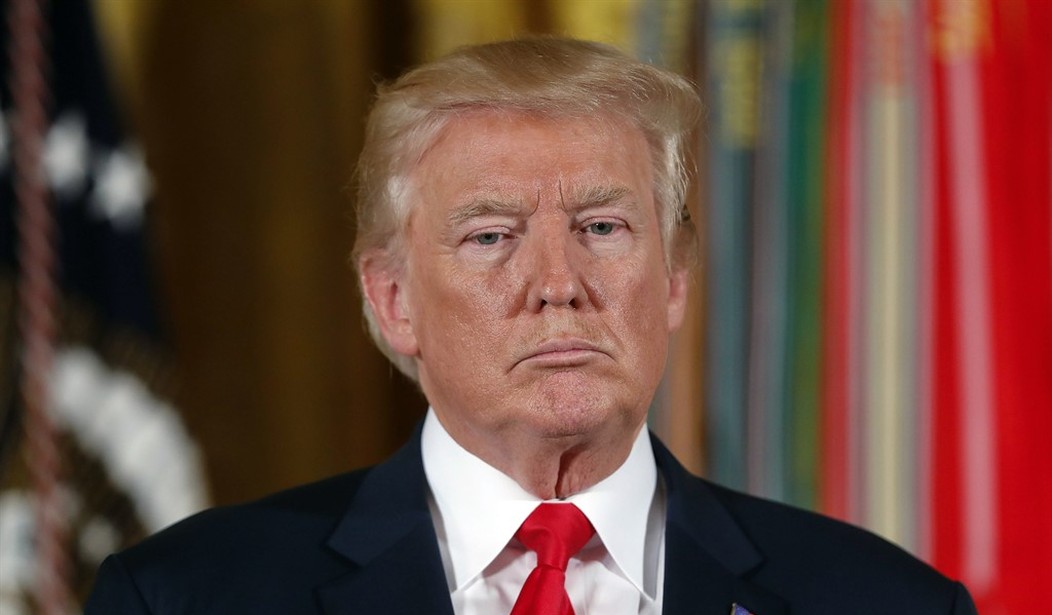Get ready for another fight between both ends of Pennsylvania Avenue on sanctions, even if it may take a while to materialize. Earlier today, Donald Trump signed the bill passed on a nearly unanimous vote in both chambers of Congress last week that punishes Russia for its interference in the 2016 election. However, Trump made it clear that he intends to push back on many parts of the new law, especially when it comes to presidential prerogatives and Congressional jurisdiction:
President Trump today signed a bill aimed at punishing Russia for its interference in the 2016 election despite his reservations to tighten sanctions against Moscow.
The legislation was passed with rare and overwhelming bipartisan support in Congress last week.
The bill limits the president’s ability to lift or waive sanctions against Russia and keeps in place sanctions the Obama administration imposed last year. It also allows the U.S. to deny entry and revoke visas for individuals who have engaged in certain activities, such as selling arms to the Syrian government or abusing human rights.
Trump’s decision to sign the bill had been widely expected. Mike Pence, Rex Tillerson, and Sarah Huckabee Sanders had all predicted that Trump would put his signature on a bill he clearly disliked, preferring to avoid a veto fight he would have lost. The Senate’s decision to postpone the recess cost Trump an opportunity to exercise a pocket veto, but he could have used the same process to allow the bill to pass into law without his signature.
That wouldn’t have afforded Trump the opportunity to formally inveigh against the bill, however. Trump attached a lengthy, detailed signing statement objecting to much of the substance of the bill, and promising essentially to ignore it where he deemed it an unconstitutional incursion into executive authority:
JUST IN: Pres. Trump issues signing statement calling Russia sanctions bill "significantly flawed." https://t.co/zkcYjFzoF3 pic.twitter.com/aYfNBbnm5b
— ABC News (@ABC) August 2, 2017
Trump cites no fewer than a dozen sections of the HR 3364 as objectionable on constitutional grounds. If that’s the case, shouldn’t he have vetoed the bill? When Barack Obama used signing statements to complain about legislative encroachment, conservatives argued that Obama was abusing his authority and theoretically pledging not to do his job in enforcing the law. (Conservatives were a little less offended when George W. Bush did the same thing, although not entirely silent on the subject either.) Presidents have a responsibility to protect and defend the Constitution, and the veto is a powerful tool for that purpose.
Granted, Trump’s veto would have been overridden and perhaps that would have stung politically. It would have left him in better position to defend against the exercise of these offending sections, assuming they do encroach on executive jurisdiction and authority. On the other hand, the Supreme Court has been known to take signing statements into account when arbitrating such disputes. Justice Samuel Alito helped develop the signing-statement strategy while serving in the Reagan administration, arguing that it provides a historical marker on the executive-branch history of laws as well as legislative history.
Still, a veto would have been a much more effective historical marker than a signing statement. If Trump decides to contravene these sections in the future, Congress will have to file suit to enforce them, and a court may well wonder why a president would sign a bill if he truly thought it had this many constitutional flaws.








Join the conversation as a VIP Member